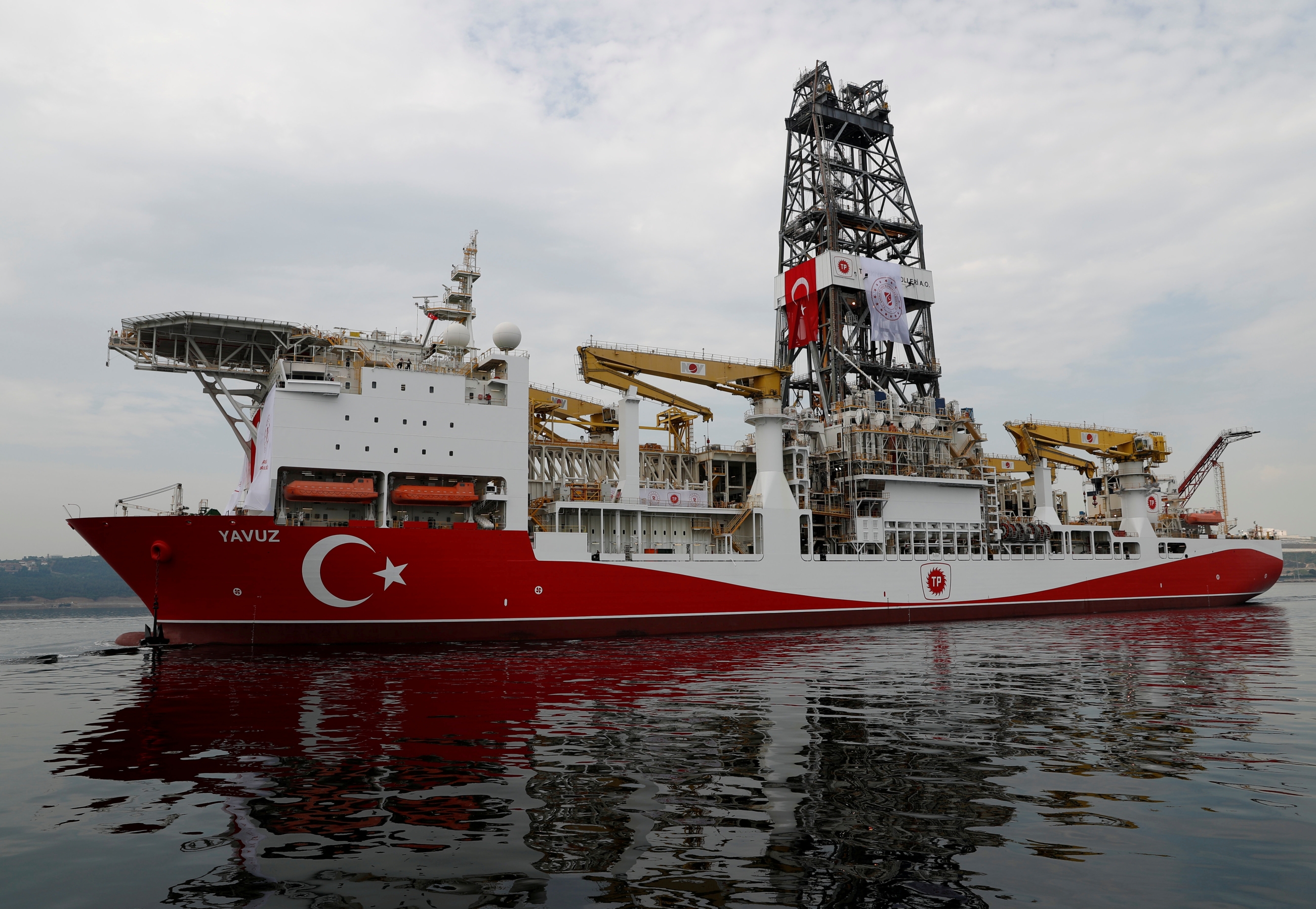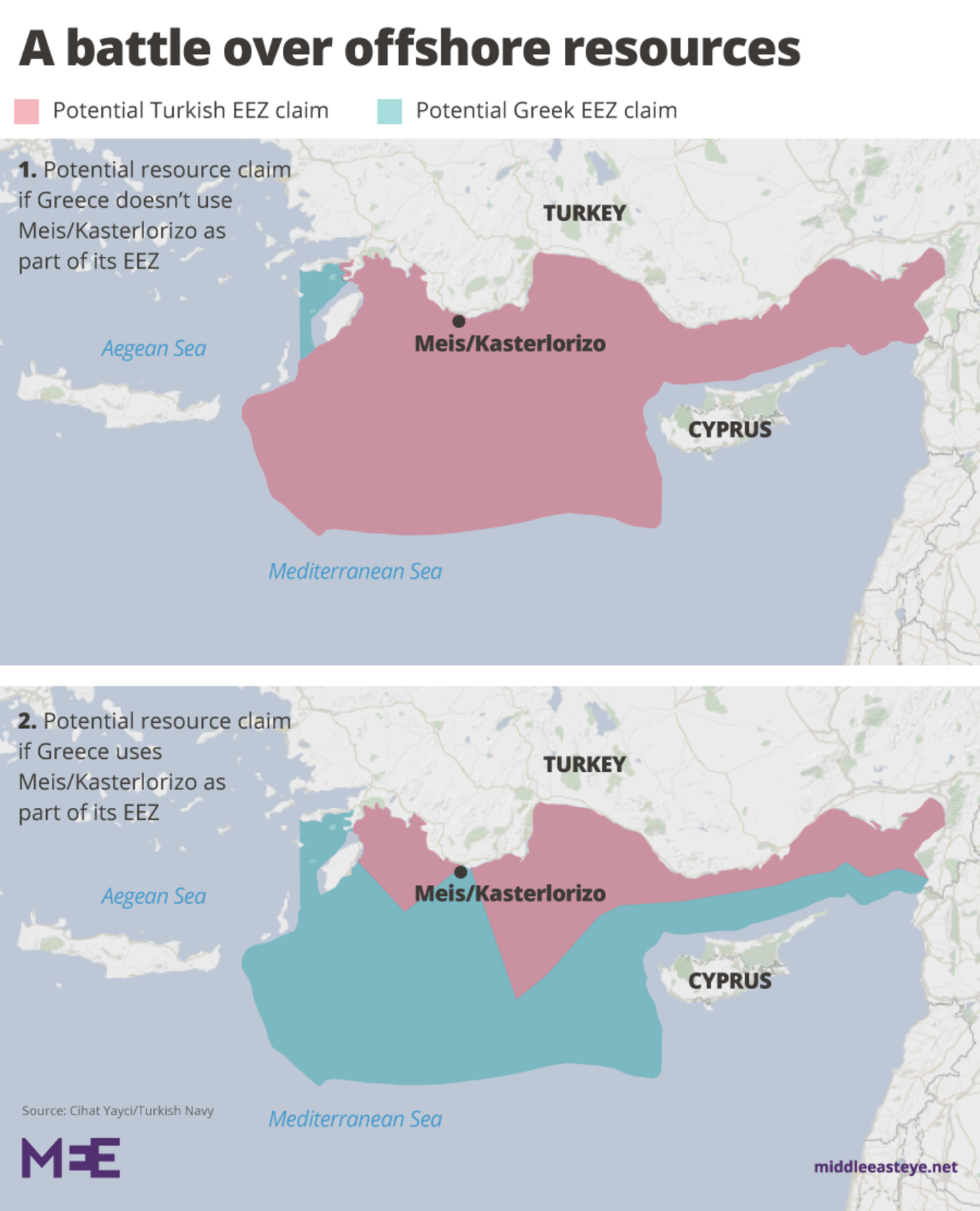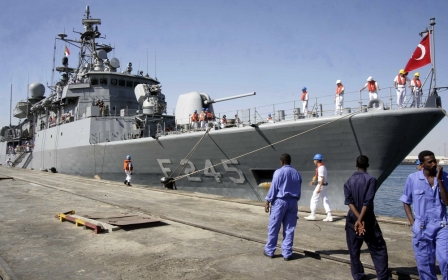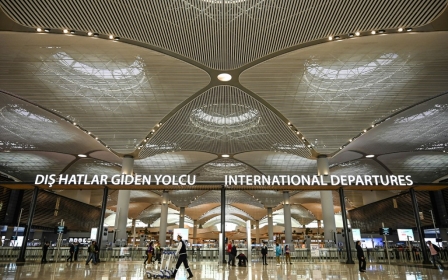Turkey dismisses Greek and EU claims that drilling off Cyprus illegitimate

Turkey has dismissed claims from the EU that its drilling operations near Cyprus are illegitimate, accusing the bloc of lacking impartiality.
On Wednesday, the foreign ministry said Turkey's Fatih ship had started drilling activities to the west of the Mediterranean island at the start of May and its Yavuz ship had recently arrived east of Cyprus and would also conduct drilling activities.
The Yavuz drillship dropped anchor on Monday to the south of Cyprus' Karpasia peninsula, a jutting northeastern panhandle. It triggered a strong protest from the Republic of Cyprus and rebukes from the EU and Greece.
In June, EU leaders warned Turkey to end drilling in waters around the island or face action from the bloc.
"We reject the statements by the Greek Foreign Ministry and EU officials which describe these activities of our country as illegitimate," the Turkish foreign ministry statement said.
New MEE newsletter: Jerusalem Dispatch
Sign up to get the latest insights and analysis on Israel-Palestine, alongside Turkey Unpacked and other MEE newsletters
Cyprus was divided in 1974 after a Turkish invasion triggered by a brief Greek-inspired coup. The Republic of Cyprus in the south of the island is a member state of the EU, while the north of the island is controlled by the Turkish Republic of Cyprus which is only recognised by Turkey.
Several peacemaking efforts have failed and the discovery of offshore resources in the eastern Mediterranean in the 2000s has complicated the negotiations.
According to the UN Law of the Sea, coastal states have a right to 320km of maritime territory from their coast or a baseline drawn off their coast where they can declare an "exclusive economic zone" (EEZ), where they have a right to explore and exploit natural resources.
However, because of the concave shape of the Eastern Mediterranean, there is an overlap between the areas that each country can claim, requiring negotiation and compromise – and opportunity, say some, for leverage in ongoing conflicts.
Neither Turkey nor Greece has made official EEZ claims, but that hasn’t stopped them from fighting over the territory they envision to be their own.
Athens has suggested that it could base its claim to an EEZ on the location of the island of Kasterlorizo, known as Meis in Turkey, which is just two kilometres off the coast of Turkey. Such a move would reduce the area that Turkey could claim as its EEZ from about 90,000 square kms to 26,000 square kms.
Meanwhile, the Greek Cypriots have signed EEZ agreements with Egypt, Lebanon and Israel to which Turkey has objected on the grounds, it says, that certain areas in Cyprus's EEZ, fall under the jurisdiction of Turkey or of the Turkish Republic of Cyprus.
“Following the discovery of a series of natural gas fields in the Eastern Mediterranean in recent years, we have been witnessing a steady increase in strategic and tactical moves towards this region and Cyprus by global and regional powers," Necdet Pamir, an energy analyst at Sigma Insight Turkey, an Ankara-based thinktank, told Middle East Eye in January.
"When we look at the military aspect of the location, we must never think that it is irrelevant to the international struggle to get hold of the hydrocarbon resources and control the transportation routes most of which originate from the oil and gas-rich Middle East region.”
EU diplomats are meeting in Brussels on Wednesday to discuss any possible sanctions on Turkey over the drilling before EU foreign ministers meet on Monday.
The US also voiced concerns about Turkish activities in the Mediterranean on Tuesday.
"The United States remains deeply concerned by Turkey's repeated attempts to conduct drilling operations in the waters off Cyprus and its most recent dispatch of the drillship Yavuz off the Karpas Peninsula," said State Department spokeswoman Morgan Ortagus in a statement. "This provocative step raises tensions in the region."
"We urge Turkish authorities to halt these operations and encourage all parties to act with restraint and refrain from actions that increase tensions in the region."
Middle East Eye delivers independent and unrivalled coverage and analysis of the Middle East, North Africa and beyond. To learn more about republishing this content and the associated fees, please fill out this form. More about MEE can be found here.





